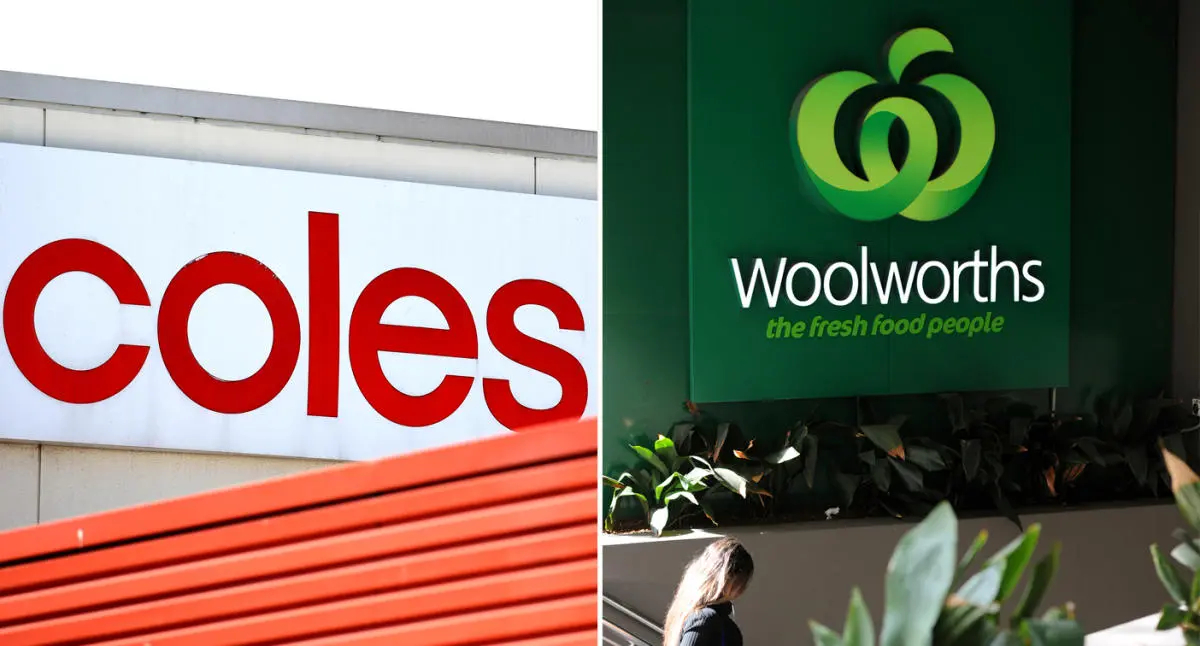Amazon’s Rapid Expansion in Australia Alerts Coles and Woolworths to Competitive Threat

In 2023, Amazon significantly boosted its delivery capabilities in Australia by almost 50% and invested $5 billion in the country the previous year.
This growth has raised concerns among Australia’s largest supermarket chains, Coles and Woolworths, despite being somewhat overlooked during a Senate inquiry into grocery pricing.
Although Aldi has been traditionally viewed as a closer rival to the two supermarkets, having invested $7 billion in Australia over 23 years, Amazon’s rapid expansion poses a new threat. With a market capitalization of $US1.885 trillion, Amazon is 75 times larger than Woolworths and 135 times larger than Coles.
Amazon is clear about its growth objectives in Australia, aiming to increase its workforce from 7,000 to nearly 12,000 across all operations. The company plans to add 4,000 new jobs at new facilities over the next two years.
Amazon now also offers a variety of pantry essentials—items that typically constitute 60 to 70 percent of a supermarket’s inventory—such as rice, pasta, toilet paper, soft drinks, cooking oil, and even Vegemite. Currently, the only categories it does not cover are fresh fruits and vegetables, meat, poultry, and chilled dairy products.
In the U.S. and the U.K., Amazon has been actively pursuing the supermarket sector through physical stores. It has launched a series of Amazon Fresh supermarkets and acquired Whole Foods Market for $US13.7 billion, which includes 500 stores across the U.S. Unlike in Australia, in these countries, Amazon also delivers the types of fresh products it does not currently offer in the Australian market.
Despite Amazon’s significant expansion in Australia, with plans to increase the number of its “fulfilment centres” from six to ten, the company’s local operations have yet to turn a profit. Last year, Amazon’s Australian sales reached $3.1 billion, yet it reported a loss of $8.8 million.
Andy Jassy, Amazon’s CEO, recently described Australia as an “emerging geography” for the company and indicated that it is on the path to profitability. In his communication to shareholders, Jassy also pondered the expansion of Amazon’s substantial grocery business.
He speculated on the impact of integrating same-day delivery for perishable items like milk and eggs into Amazon’s existing service, which could revolutionize the way customers approach their weekly grocery shopping by combining the convenience of non-perishable and perishable purchases.
Last year, Amazon’s country manager for Australia, Janet Menzies, told The West Australian that the company was proud to have pressured major competitors to improve their delivery services.
Recently, a spokeswoman emphasized that Amazon is dedicated to providing value to Australian shoppers, noting that recent research suggested online retail’s cost-efficiency and competitiveness had helped keep inflation lower by 0.7 percentage points at its peak in 2022. This, she stated, significantly aids Australians in managing their household budgets.
Coles and Woolworths CEO Leah Weckert commented on Amazon’s advantages in automation and lack of physical stores, which enhance their supply chain efficiency and set higher standards for delivery speeds and convenience.
She mentioned to the Senate that Amazon’s introduction of same-day and, in some cases, hour-based delivery services has reshaped customer expectations. In response, Coles has launched ColesRapid, which offers deliveries within 60 to 90 minutes, while Woolworths has introduced MilkRun, boasting an average delivery time of 33 minutes.
According to a UBS study, the percentage of consumers using Woolworths as their primary online grocery store decreased from 43.3% before the pandemic to 40.8% in the last quarter of the previous year. Coles also saw a decline, dropping from 32.6% to 30.4%, and IGA’s numbers fell as well. Meanwhile, Amazon’s share increased from 6.3% to 9.8% during the same period.
Despite the challenges presented by Amazon’s entry into the market, both Woolworths’ CEO Brad Banducci and Coles’ CEO Leah Weckert acknowledged the intensified competition in the grocery sector. However, they were only briefly questioned about this during a Senate hearing on Tuesday.
Mr. Banducci emphasized the importance of delivery capabilities, noting that Amazon’s new warehousing system allows them to reach 84% of Australian households within 24 hours. He highlighted that the critical metric for success in the retail market is not the number of stores but the ability to efficiently serve customers.
Ms. Weckert pointed out that Amazon’s model benefits from not having to transport products extensively across the country. She explained that Amazon typically starts with a traditional offering, such as books, toys, and electronics, before expanding aggressively into groceries. Amazon competes fiercely on price, often willing to sustain low or negative returns for prolonged periods to establish a significant market presence.

Similar Posts
Sigmacare Review – A Healthcare Solution
Century Ethos Review
Role of Artificial Intelligence in the Health Sector – Technological Revolution